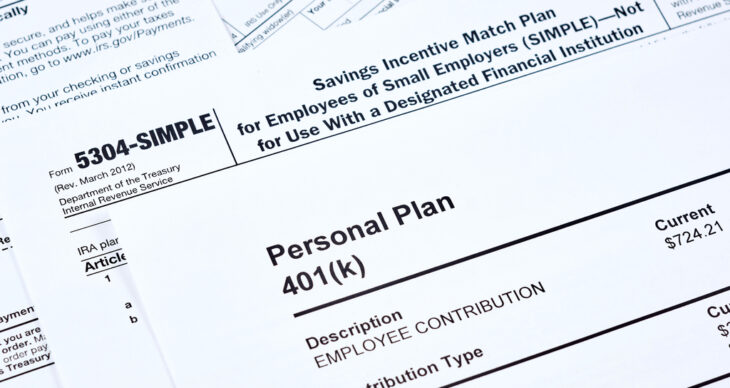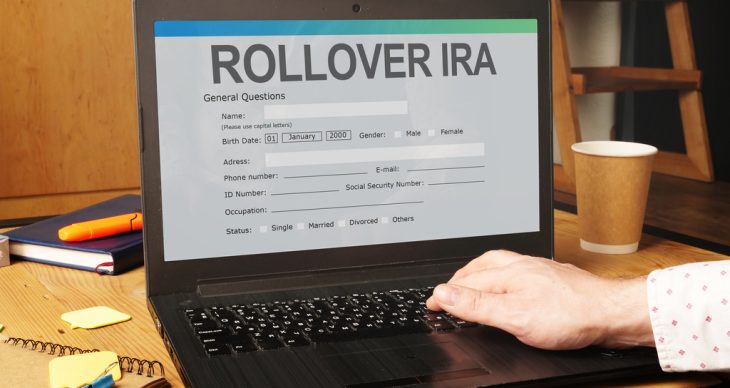Retirement planning is one of the most important things you can do for your future self. This process consists of setting income goals and making decisions about how to handle your wealth during retirement.
Whether you are approaching retirement age or still have a long way to go, it’s never too early to start planning for your retirement. With so many different plans to sort through, you want to make sure to give yourself ample time to prepare. Here are the top 6 retirement plans you should consider as you prepare for retirement.

Social Security benefits are included in nearly all Americans’ retirement plans. If you’ve worked and paid Social Security taxes in the United States, it’s likely that you qualify for benefits when you reach retirement.
To qualify for Social Security benefits at retirement age, you must have enough work credits. When you work, you earn work credits; you need to accumulate at least 40 work credits (roughly 10 years of work) throughout your lifetime to qualify.
You don’t need to earn the credits cumulatively. For example, if you stop working before you earn 40 credits, the credits you do have will remain on your Social Security record. Then, when you return to work at a later time, you can add more work credits to qualify for benefits.
Social Security benefits begin when you reach your official retirement age, though you could start receiving them as early as age 62. However, the earlier you start receiving benefits, the lower your benefit amount will be.

A traditional IRA plan, also known as an individual retirement account, is one of the most popular retirement plans. This is a type of retirement investment in which you make pre-taxed contributions toward stocks, bonds or whatever type of investment you’d like. Over time, the money you contribute grows tax-free until you reach retirement.
Anyone who earns income through employment can open a traditional IRA and start contributing. It is one of the best retirement plans for people who don’t want to pay taxes on their investments until it is time to withdraw the funds.
A traditional IRA plan restricts you from withdrawing your money before you reach retirement. If you need access to the money in your account, you could face heavy penalties and taxes when you withdraw it before you are of retirement age.

A 401k is a defined contribution (DC) retirement plan that is typically offered by employers. It is a staple in the retirement planning process and has largely replaced pension plans altogether.
The way a 401k works is simple: employees designate a specific amount of money from their paycheck that they would like to contribute to the plan. Then, each time they get paid, that specified portion of their wages automatically deposits into the account. The contributions are pre-tax dollars, which means the money is considered non-taxable income.
This retirement investment can be extremely beneficial because you can invest the money into a wide array of high-return investments, like stocks. Plus, you don’t have to pay taxes on your earnings until you are ready to retire.
If you’re lucky, your employer might even match your 401k contributions up to a certain percentage. This is like free money, just for having an account
But what if you are self-employed? Or what if your employer doesn’t offer a 401k plan? You always have the option of opening an individual 401k, which is a plan that is independent of an employer.
You can buy an individual 401k plan from many financial investors and companies. For example, the Charles Schwab retirement branch offers individual 401ks with many of the same benefits. Other popular companies that offer this plan include:
- TD Ameritrade
- Fidelity
- E*Trade
- Vanguard

A traditional IRA plan is not the only type of individual retirement account available to you. A Roth IRA generally works in the same way that a traditional plan operates. However, the key difference is in the taxes.
With a Roth IRA plan, you make after-tax contributions. This means you are paying taxes on the funds up front rather than at the time of withdrawal. The benefit of making after-tax contributions is that you do not have to pay taxes on the money when it is time to retire.
A Roth retirement account is usually more flexible when it comes to making early withdrawals. Most Roth IRAs allow you to extract your contributions – not your earnings – from your account early without any penalties.

A guaranteed income annuity, or GIA, is another type of retirement plan you may be considering. This is not to be confused with a GIA diamond, which is a certified luxury gemstone that some individuals invest in.
GIAs are not usually offered by employers. Employees may decide to purchase an individual GIA plan to create their own investment plan. The primary purpose of any GIA is to provide you with guaranteed income during retirement to ensure you have enough money to support your lifestyle when you are no longer working.
With a GIA, you typically make a lump-sum contribution that is divided into fixed monthly payments.These payments are usually paid out over the course of your lifetime, but some plans allow you to specify a period of time during which you want to receive payments.

When you convert one IRA plan into another or move money from another type of retirement account into an IRA, it is known as a rollover account. In short, you are “rolling” the funds from one account to the next.
Many companies offer rollover IRAs. Of all the JP Morgan retirement plans, rollover IRA plans are some of the most common. JP Morgan Wealth Management is a business of JP Morgan Chase, a popular nationwide bank. It offers several types of retirement accounts, including rollover plans.
There’s no limit to the amount of money you can move over with a rollover IRA. This type of retirement account is ideal for those who plan to leave an employer’s 401k plan, but still want to benefit from the tax advantages of a retirement savings account.